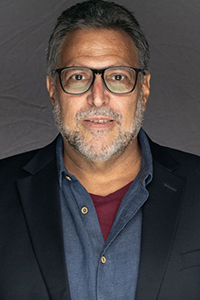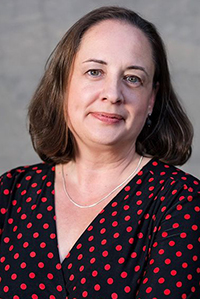A few weeks back, Sen. President Warren Petersen, R-Gilbert, tweeted: “Just finished a great meeting with FL SOS… As expected a big difference is that we do not have a cutoff for early ballot dropoffs at polling like they do.”
For those who do not know, Petersen was referencing the timeline for Arizona to count ballots. Like him, some elected leaders are fixated on the fact that Arizona doesn’t report election results on Election Day due to ballot dropoffs. They are even trying to use this conclusion to justify ending ballot dropoff by seeking to pass Senate Bill 1001, which could shorten the timeframe in which voters have to return early ballots, forcing more people to stand in line on Election Day.

This bill takes a path to the ballot box away from Arizona voters, in an attempt to make early voting less convenient and less accessible. Why? Because politics have shifted in Arizona. We now have highly competitive races and one party cannot simply force their pet policies on the people of Arizona without attempts such as these.
Some legislators would have you believe that voters are responsible for delays and long lines. In reality, the single biggest factor for the delays in 2024 was the two-page ballot, caused by legislators who forced these bad policies on the ballot in an attempt to override Gov. Katie Hobbs’ veto pen. For the first time in nearly 20 years, the Arizona ballot expanded to two pages, front and back, in many counties because more than 20 legislative referrals were put forward throughout the year, 11 of which made it onto the ballot. These referrals were an attempt to circumvent Hobbs, who often uses her veto power to protect Arizonan’s rights and freedoms.
Legislators, who caused the delay, now seek to blame voters and, despite playing the blame game, nine of 15 counties certified earlier this year than in the last three presidential election years despite the recount law change, which slows certification.
It is important to note that Arizona has never delivered election results on Election Day, in part because our procedures favor having every voice be heard over the unreasonable demands of candidates and politicians for immediate results in razor-close races. In close races, it always takes time to call the winner, in every state. And now, Arizona is a place where we have close races. Arizona voters deserve to have their voting rights protected and expanded, not reduced and eliminated because candidates demand instant answers and legislators seek to go around the governor.
Further, the fact that our legislators are looking to Florida for model policies and procedures should be terrifying for Arizona voters. In Florida, they created an election police force that their governor used in a targeted campaign to intimidate women who signed a petition for reproductive rights. They also made it illegal for community groups to provide food or water to people waiting in line to vote. We could go on and on about the many harmful policies Florida’s Legislature and governor have enacted against Florida voters.
Florida should not be the blueprint for Arizona. We want local solutions for Arizona voters. We want our legislators to show restraint by not littering the ballot with every awful idea vetoed by the governor and be thoughtful and strategic when deciding election policy, not reactive and shortsighted. SB1001 doesn’t even come close to helping voters.
Arizonans deserve leadership that strengthens our democracy, with bipartisan ideas that help more voters successfully cast their votes. Fortunately, there is a list of bipartisan proposals in a report of the Governor’s Bipartisan Elections Task Force issued at the end of last year. If legislative leaders are really inspired to make positive progress that could actually result in new, pro-voter policies that would be signed by the governor, it seems like that would be the right place to start the 2025 legislative session.
Alex Gulotta is State Director for All Voting is Local Action Arizona.



























